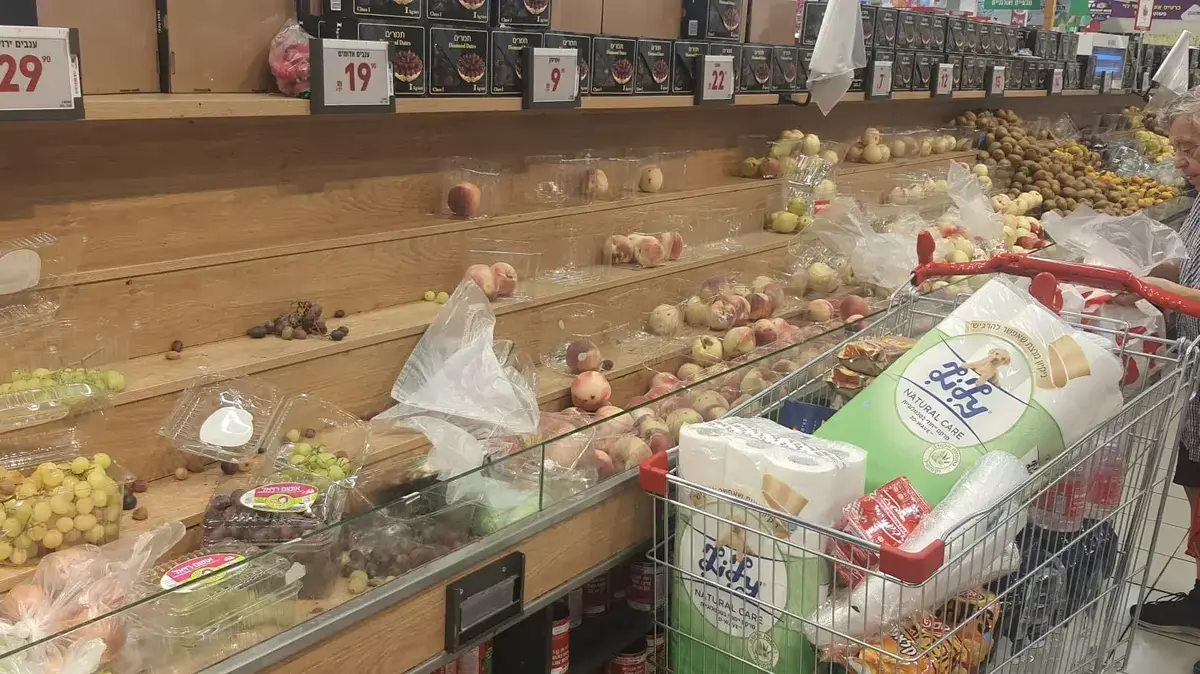The corona virus crisis is causing supermarkets to run into customers. Apparently, many are worried that the markets may run out of food. However, the trade gives the all-clear.
Cologne (dpa) - Noodle shelves swept empty, toilet paper in short supply and here and there even sales volume restrictions in the shops: The effects of the corona virus crisis on the food trade cannot be overlooked. Nevertheless Edeka, Rewe, Aldi and Co. give the all-clear.
The supply chains in Germany are secured despite the significantly increased demand, the retail chains emphasized.
- Full shelves: According to the large retail chains, the supply of goods in Germany is still secured. Edeka and Rewe emphasized that they had already increased the frequency of goods deliveries in the past few days in order to meet the increased demand. Aldi, Real and Kaufland made similar statements.
- Where a lot of food comes from: Christian Böttcher, spokesman for the Federal Association of German Food Trade, emphasized that many producers are located in Germany anyway. According to the Federal Ministry of Agriculture, this applies in particular to meat, milk and grain products. In 2018, significantly more was produced here than was consumed domestically. Recently, however, this balance was significantly weaker at around 38 percent for fruit and vegetables. The majority of the products here came from other countries. "Germany is well supplied with local food so that hamster purchases are not necessary," said farmers' president Joachim Rukwied. "There will continue to be a sufficient supply of basic foodstuffs such as cereals, potatoes, fruits and vegetables." The animal's feed supply is also secured, so that meat, sausage or milk are also still available.
- Deliveries from abroad: According to Rewe, there have also been no problems with deliveries of goods from abroad. The restrictions imposed in the past few days relate only to the movement of people, not to the movement of goods. The transport times would have been lengthened by the border controls. In order to compensate for possible transport-related fluctuations, the group increased the inventory.
- This is what the authorities say: The European Commission recommended that separate lanes be set up for lorries so that they would not be stopped at the borders. Hospitals, the health system in general, and patients need supplies of medical supplies. The same applies to food and industry. "We have evidence of kilometers of traffic jams at some border crossings," said government spokesman Eric Mamer in Brussels. However, it must be ensured that goods reached their recipients on time. Italian pasta maker Barilla meanwhile emphasized that none of its production facilities are currently affected by major restrictions. Logistics also works "at a very good level".
- WHERE are there problems? Whilst the retail sector is still trying to cope with the rush of customers, the food wholesale trade is experiencing an enormous drop in demand as more and more schools, day care centers and restaurants are closing down. The effects can be felt particularly from the hospitality industry, said Marcus Schwenke, managing director of the wholesale association Foodservice. "But people no longer go to the company canteens because they do home offices. The same applies to daycare centers and school canteens that are closed everywhere," said Schwenke. He emphasized that it would be possible for wholesalers to supply supermarkets in an emergency should bottlenecks arise due to high demand. "It would be no problem at all to supply sensitive goods such as cheese and meat yourself," he said. "But I don't think we're in that situation right now."
- No hamster purchases necessary: the food retail trade again appealed to consumers to only buy as much as the immediate needs required. "Please refrain from buying hamsters," said the spokesman for the Federal Association of German Food Trade, Christian Böttcher, calling on consumers. "With this we all make a contribution so that everyone gets something."
Message Rewe













